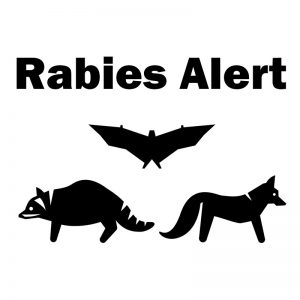The Glynn County Health Department is alerting residents of Brunswick in Glynn County that a grey fox has tested positive for rabies. There were two separate wild fox encounters July 20 and 21 in central Brunswick. It’s not known if the same fox was involved in both incidents.
On July 20, two people were attacked by a grey fox outside their home in the area of Cate Road and Perry Lane. The fox escaped and could not be tested, but the two individuals began post-exposure rabies treatment as a precaution. The following day, on July 21, an individual in the same area encountered and killed a grey fox that was acting aggressively. The Department of Natural Resources worked with a public health lab for rabies testing, and the positive test result was reported today. The health department is working to notify all individuals involved in the incidents to provide guidance about post-exposure rabies treatment.
This is an important reminder to avoid contact with wild animals and to keep your pets up to date on rabies vaccinations. Several species of wild animals in coastal Georgia – including raccoons, foxes, and bats – can carry rabies. Feral cats and dogs can carry rabies as well. Rabies is a potentially deadly virus that is primarily spread by infected animals.
The Glynn County Health Department Environmental Health office has these tips to protect you and your family from rabies:
- Avoid contact with animals you don’t know.
- Make sure your pets receive the proper immunizations. Dogs and cats should get rabies vaccines after 12 weeks of age, followed by a booster shot within one year and vaccination every 1-3 years depending on veterinary recommendation and vaccine used.
- Do not handle, feed, or unintentionally attract wild animals with open garbage cans or by leaving pet food out at night.
- Never adopt wild animals or bring them into your home. Do not try to nurse sick animals to health. Call animal control or a properly licensed animal rescue agency for assistance.
- Teach children to never handle unfamiliar animals, wild or domestic, even if they appear friendly. “Love your own, leave other animals alone” is a good principle for children to learn.
Symptoms of rabies in animals include a change in behavior, biting, aggression, showing no fear of natural enemies (such as humans), foaming at the mouth, and paralysis. If an animal ever bites you, seek medical care immediately and contact Glynn County Animal Control at 912-554-7500 and the Glynn County Health Department Environmental Health office at 912-279-2940.





